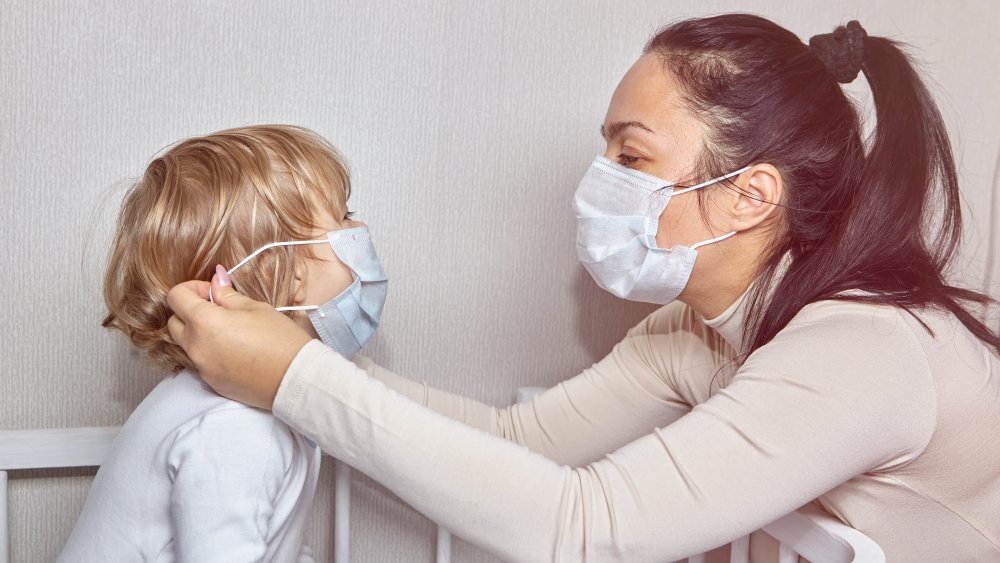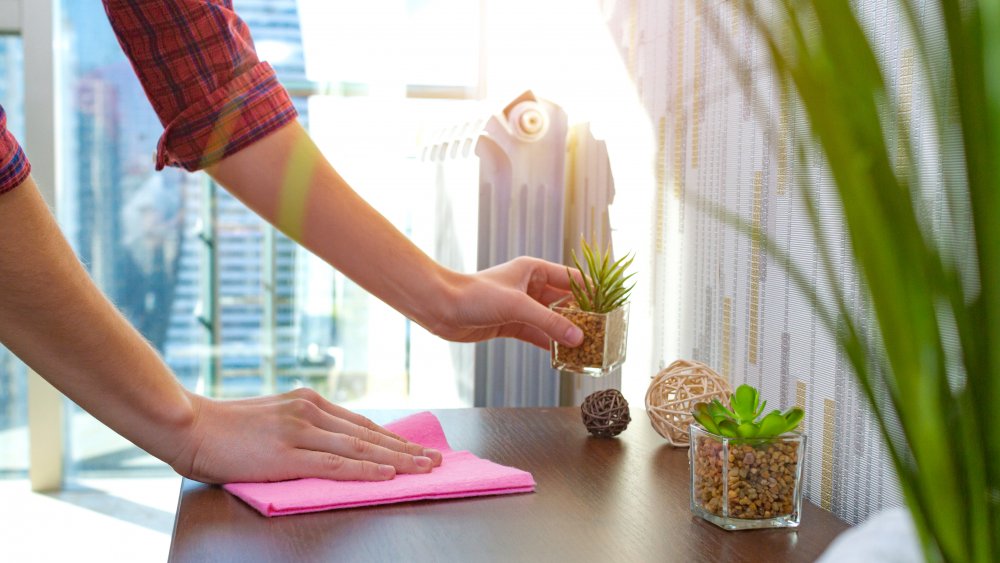Should You Wear A Face Mask In Your Own Home?
Since the CDC recommended the use of face masks, those of us who have opted to take the suggestion seriously may be spending the better part of the day wearing them. We may also be feeling more than a ripple of relief when we get home and take our masks off at the end of the day.
But before you relax, there is something medical researchers want you to know. If you're living with family, and particularly if a member is in the high-risk group, being home is not the time to relax. In fact, it may be wise to keep your mask on.
A new study, which was published in BMJ Global Health, looked at the chance of secondary transmission, or transmission between members of a family when one person was infected with the coronavirus. Researchers talked to 460 people from 124 families in Beijing, in which at least one person who had gotten ill with COVID-19. Each family was made up of between 2 to 9 persons. The researchers observed that secondary transmission happened in 41 of the families (via Forbes).
The study shows wearing a mask at home can prevent secondary infections of COVID-19
The study showed that wearing a mask at home was 79 percent effective at preventing the spread of the virus, but only if everyone started wearing masks before symptoms emerged. The study also showed that cleaning the house with bleach or disinfectants frequently was also 77 percent effective at preventing the spread of the virus (via CNN).
The researchers themselves have admitted that the study has its flaws. In the study, the researchers pointed out that, "Telephone interview has inherent limitations including recall bias. The evaluation results of mask wearing were reliable, but we did not collect data on the concentration of disinfectant used by families."
University College London's Antonio Lazzarino agreed, telling CNN, "This study is not robust science, as it has several limitations in the conception and in the statistical analysis." He also notes the study didn't distinguish between what type of face mask was worn.
Still, other researchers outside China saw value in the study. "This is an important paper because it comes at a time when — as lockdown is eased — the risk of a person entering the home who has become infected (e.g. whilst on public transport or in the workplace) but is unaware that this is so, is increasing," Professor Sally Bloomfield of the London School of Hygiene and Tropical Medicine said.

